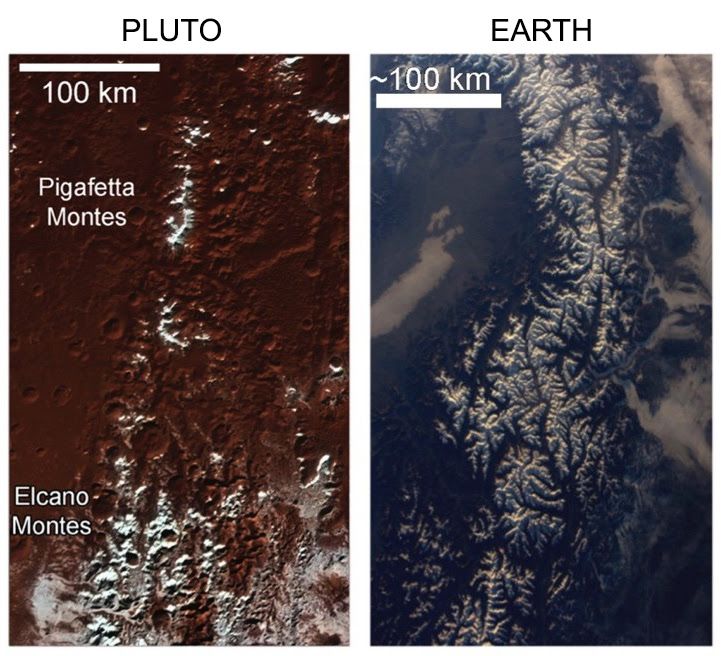
Mountains on Pluto have snowcaps that may have formed from the top down as opposed to the bottom up, the reverse of how snow caps form on Earth, a new study finds.
Pluto's frozen surface varies greatly, featuring regions dominated by different kinds of ices — from frozen methane to frozen nitrogen and even water ice.
"The bedrock of Pluto is made of water ice, but it is so cold that the ice is harder than rock," study lead author Tanguy Bertrand, a planetary scientist at NASA Ames Research Center in Moffett Field, California, told Space.com.
"The mountains on Pluto are made up of this cold hard water ice.".
At the mountain chains Pigafetta Montes and Elcano Montes in Pluto's dark equatorial Cthulhu region, scientists detected frosted peaks "strikingly resembling snowcapped mountain chains seen on Earth," Bertrand said.
This new analysis revealed that the snowcap frost "is almost pure methane ice, with traces of nitrogen ice," Bertrand said.
"Methane is a trace gas on Pluto, as water vapor is on Earth, so initially it seemed logical that the high-altitude frosts seen on Pluto could form like on the Earth," Bertrand said.
However, "on Pluto, the opposite occurs," Bertrand said.
Such activity might also help to explain how other methane reservoirs formed on Pluto, the researchers said.
"This discovery teaches us that there are still plenty of physical and dynamical processes out there in space that we do not know about, and that climates can be very different than that of Earth, despite forming similar landscapes," Bertrand said.
"It is important to study Pluto and other planetary bodies because they are natural laboratories to explore and investigate the diversity of possible climates, which gives us more perspective on our own climate.".
In addition, this work "also teaches us what is common and what is unique for planetary climates, and helps to understand where Pluto's climate, a dwarf planet's climate, fits in with the other climates we know of in the solar system — Earth, Mars, Venus, Titan, Triton," Bertrand said.